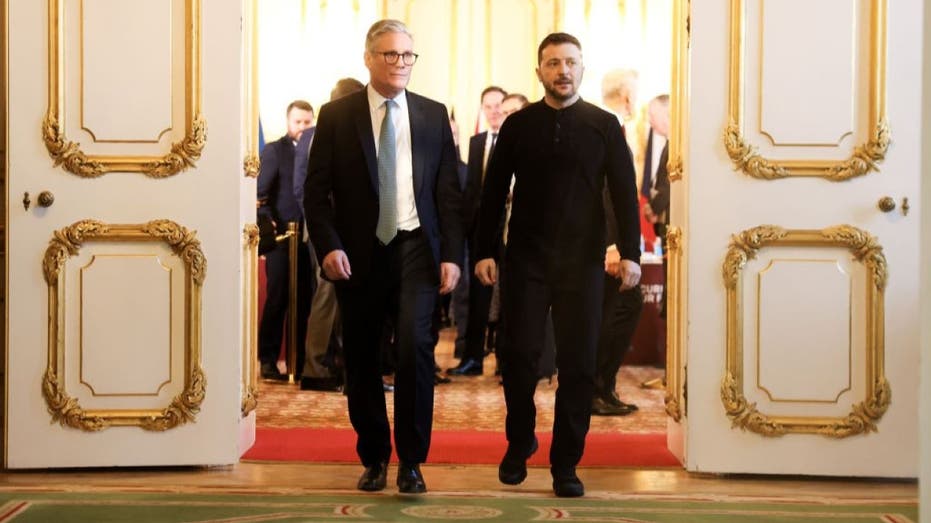UK Prime Minister Lays Out Ukraine Peace Deal Framework as Zelenskyy Faces Resignation Calls

Sarah Johnson
March 3, 2025
Brief
UK Prime Minister Keir Starmer proposes a Ukraine-Russia peace plan dependent on US support, as European leaders debate security guarantees and Zelenskyy faces international and domestic pressure.
U.K. Prime Minister Keir Starmer has proposed a framework for a peace plan between Ukraine and Russia, acknowledging that its success hinges significantly on U.S. support. The plan was unveiled on Sunday during a meeting with Ukrainian President Volodymyr Zelenskyy, alongside French President Emmanuel Macron and other European leaders.
Starmer emphasized the need for European nations to increase their contributions to Ukraine's security guarantees, particularly in light of the current U.S. administration's stance under President Donald Trump. The U.K. pledged to provide military support, including ground troops and air force resources, to ensure Russia adheres to any future peace agreements. However, Starmer admitted that the initiative would still heavily rely on American backing.
French President Macron outlined additional measures, suggesting a 30-day freeze on air, sea, and energy infrastructure strikes in Ukraine as a potential starting point for broader peace negotiations.
Meanwhile, Zelenskyy has been navigating a turbulent aftermath following a contentious meeting with Trump and Vice President JD Vance at the White House. Despite the friction, Zelenskyy reaffirmed his willingness to finalize a rare earth minerals deal with the U.S. administration. However, Secretary of State Marco Rubio dismissed the idea of offering security guarantees to Ukraine before a peace deal is in place, stating, "Deterrence is contingent upon there being a peace."
Zelenskyy remains defiant, asserting that "the best security guarantees are a strong Ukrainian army." He also warned that Ukraine's failure would signify a broader defeat for Europe and the U.S.
The contentious dynamics have drawn sharp criticism from some U.S. lawmakers. Senator Lindsey Graham openly called for Zelenskyy to resign, arguing, "He either needs to resign and send somebody over that we can do business with, or he needs to change." Zelenskyy shot back, suggesting Graham should consider Ukrainian leadership only if he becomes a Ukrainian citizen—a remark that prompted Graham to note that Ukrainians currently lack electoral options for leadership changes.
The senator further questioned whether Americans feel comfortable working with Zelenskyy after the public fallout, though he acknowledged the importance of the Ukrainian-American alliance. Graham expressed skepticism about Zelenskyy's ability to "do a deal with the United States," casting a shadow over future diplomatic relations.
As tensions simmer, the spotlight remains on European leaders and their ability to forge a unified front in supporting Ukraine, while Zelenskyy continues to face mounting political pressures both domestically and abroad.
Topics
Editor's Comments
Starmer's proposal is bold, but it feels like a high-stakes poker game where Europe is finally being told to ante up. Meanwhile, Zelenskyy is juggling a diplomatic circus—between Trump’s blunt criticism and Graham’s resignation demands, it’s clear he’s walking a political tightrope. It’s hard not to wonder if all these competing interests will ever align long enough to achieve actual peace.
Like this article? Share it with your friends!
If you find this article interesting, feel free to share it with your friends!
Thank you for your support! Sharing is the greatest encouragement for us.



